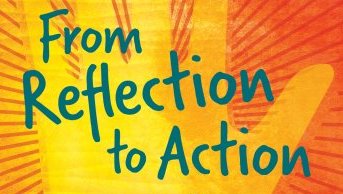
I am definitely not confused.
Having now completed my 100 hours of work placement with Big Telly Theatre company, I have a clearer understanding of myself, my skills, my likes and dislikes regarding the type of work I would like to do. My main role was handling the rolling-out of the company’s newest project, a website called Brick Moon. Brick Moon is an online venue enabling artists to collaborate with an audience from all over the world. I was tasked with creating a production pack, describing each aspect of the project in detail and promotion through corresponding with companies and artists over email and zoom meetings.
I will be using Gibbs’ model of reflection in looking back on this experience. Gibbs’ method encourages the writer to evaluate the experience through analysis of the feelings they felt during the situation, before concluding with an action plan should the situation arise again.
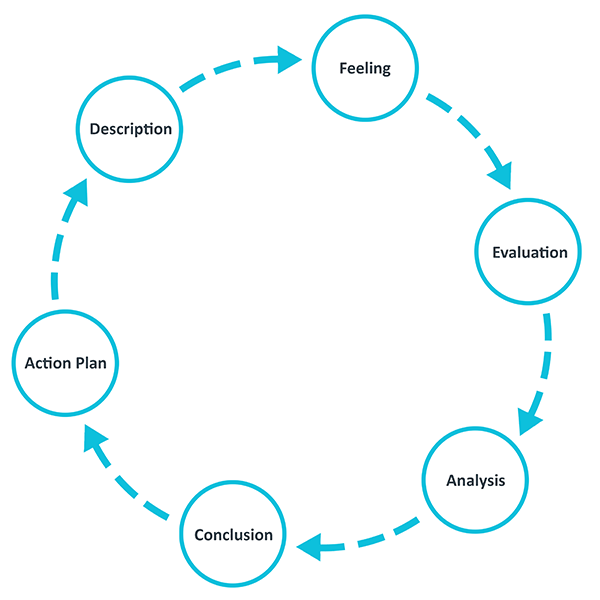
The Challenge
A challenge I faced throughout this placement was communicating when I didn’t understand a task I was given or feeling I shouldn’t ask too many questions for fear of pestering my colleagues. I had to learn that it is much better to ask for some extra explanation than to leave a zoom meeting having been given a task that you don’t fully understand and a deadline for when it must be finished.
Upon first explanation, the nature of the website, Brick Moon, was not clear to me at all. Sat in the interview hot seat facing the company’s artistic director and producer, they outlined their multi-faceted platform for artists to live-stream their process to an audience all over the world. However, there would also be a physical venue attached, the elements of which can be controlled by the online audience via a digital remote on the website. I was baffled.
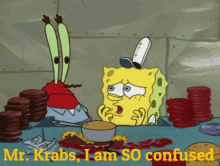
My confusion was understandable, as explained to me by my interviewers, who had been working on the project for months and admitted it took them a long time to get to grips with the concept. They informed me that it was fine to ask questions. At the time however, I was deep in my ‘fake it ‘til you make it’ interview façade and so acted as though I understood everything completely. I must have done too good a job, as I was then given the role of Assistant producer on the project.
The Feeling
My fear of asking for help when needed should have been unfounded, I was reassured by my colleagues that it was completely fine to have questions. It was my own fear that held me back from asking for help. I feared that to admit that I didn’t understand a task would make me seem incompetent or less efficient a worker in eyes of the team.
So, with my shaky understanding of the project’s concept, I proceeded in my given task of describing every detail of the website for the document which we would then be sending out to garner interest. A strange and illogical path but oh well.
‘There can be no learning without action, and no sober and delicate action without learning.’
Cunningham, I. Dawes, G. and Bennett, N. (2004) The Handbook of Work based Learning. Aldershot: Gower. pp57
Creating this production pack in which I had to describe the website, its functions, its intended use and how it would work forced me to constantly ask questions. The fear of doing the task wrong actually proved more real than the fear of being extremely annoying. I learned that having to be told where I was going wrong felt much worse than asking. Also the knowing that if I had asked, I would not have to be told.
Evaluating
Having attended the AEL3001 lecture focusing on communication in the workplace, I understand how it is a vital part in forming and maintaining relationships in the workplace and therefore, the industry. The lecture also provided me with tips for communicating my questions and requests, which made me feel more confident in how I was presenting myself. I made sure to follow the politeness strategies when approaching my colleagues in stressful situations such as before the opening night of their new production. Politeness strategies include swapping out negative language for positive language and without use of redressive action.
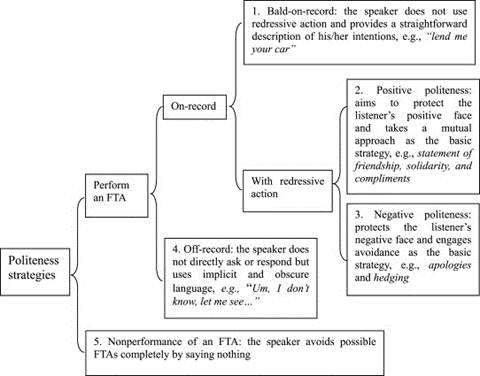
Forming questions and requests in this way helped me feel less ‘annoying’ which was the central reason for my fear of asking for help. I will definitely keep this strategy in mind for future situations as it enabled me to stop worrying and feel more professional.
Analysis
Once I began asking questions, I was able to produce much better work with a sense of confidence in my skills. I felt I could actually have fun with the tasks rather than feeling blind and desperately hoping that I wasn’t doing everything wrong.
Working from home, while comfortable, was also quite a challenge and definitely added to my anxiety towards reaching out for help. I would find myself confused about what it is I must do and feel disconnected from those who could help me. Of course, the team were only an email away, however I found reaching out online more difficult than I would turning around in my chair and asking a person face to face.

A few weeks into my placement I was able to work in the ‘office’ space the company where working from; an unused department store space that was to be the venue for their next promenade theatre piece. I felt much more relaxed completing my tasks when Crissy, the company producer and my go-to for any help I needed, was sat near me also on her laptop. The ice was broken by the chit-chat and action happening in the space and I felt much less pressure than I did working from home.
To conclude…
Being around people was a much preferable work environment as I felt motivated by my peers and realised that no one was breathing down my back as I had imagined they were when our only contact was through email. This made it much easier to ask questions and communicate when I was struggling with something I had been asked to do. I learned that once you ask a question, you open up the topic for conversation, not only giving yourself a better chance of understanding the concept but also an opportunity to insert some of your own thoughts and ideas. This is how it was in my case, when I was more open about what I understood and what I was unsure about, the process began to feel more collaborative and I felt a sense of pride that I had contributed.

Next Time
This experience has taught me not only about the type of work I enjoy, but the environment I work best in and to assert myself, whether it be asking a question or posing an idea. I will carry on the things I have learned from this experience as the techniques and lessons will definitely prove beneficial in my place of work in the coming year.
‘in order for transactional goals to be met, directives must be given (and followed), and requests need to be made (and granted).’
Vine, Bernadette, Introducing language in the workplace. Cambridge: Cambridge university press, 2020. pp54
Bibliography
Cunningham, I. Dawes, G. and Bennett, N, The Handbook of Work based Learning. Aldershot: Gower, 2004.
Jasper, Melanie, Beginning Reflective Practice. Singapore: Cengage Learning, 2011.
Vine, Bernadette, Introducing language in the workplace. Cambridge: Cambridge university press, 2020.
You May Also Like
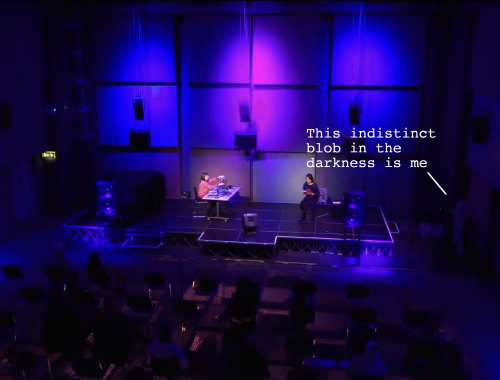
Teamwork Makes the Stream Work
27 March 2022
Patience is a Virtue
26 March 2022